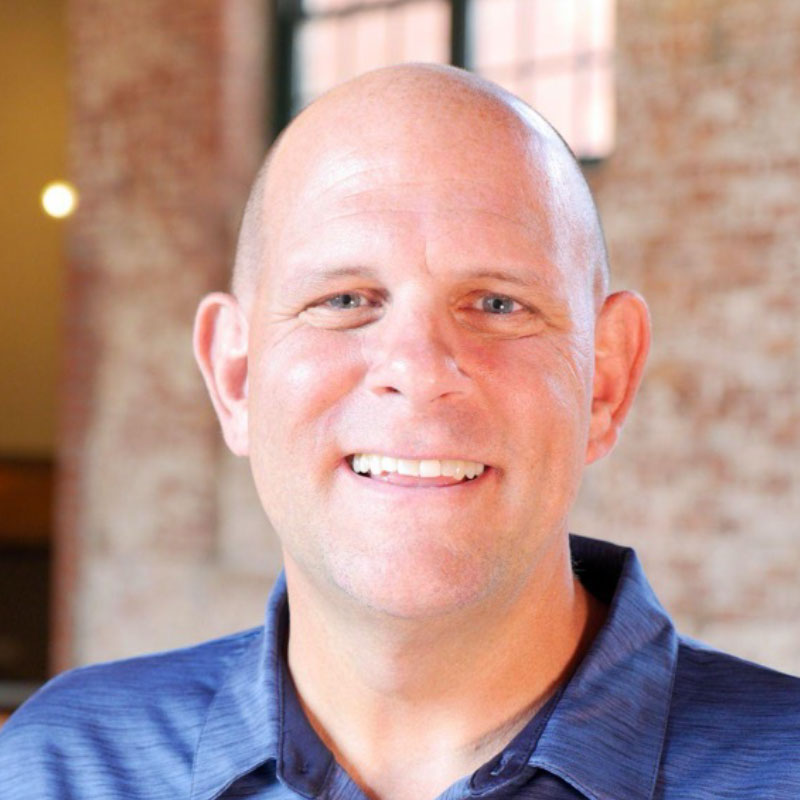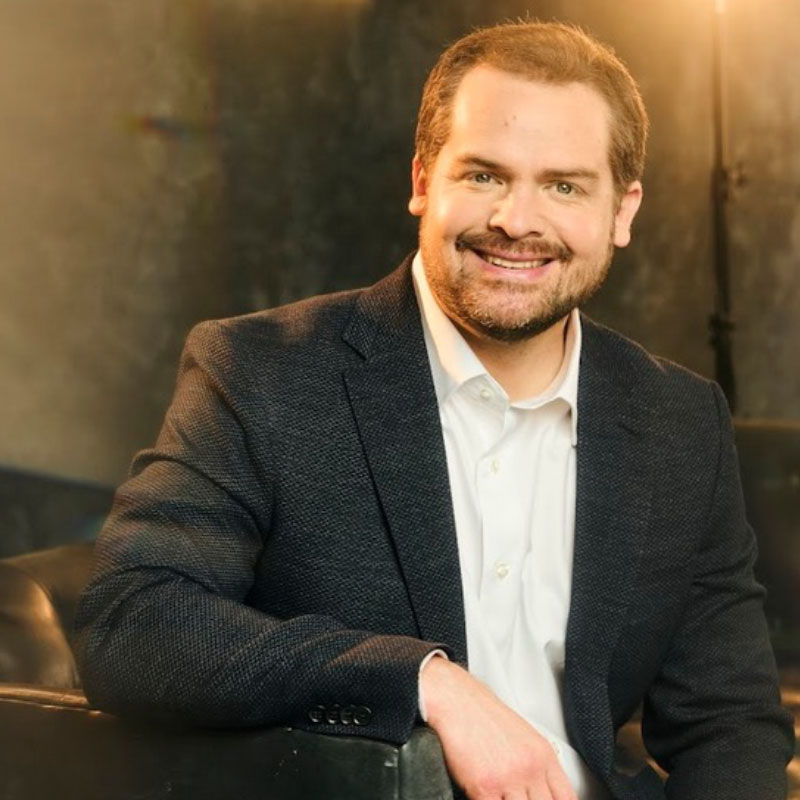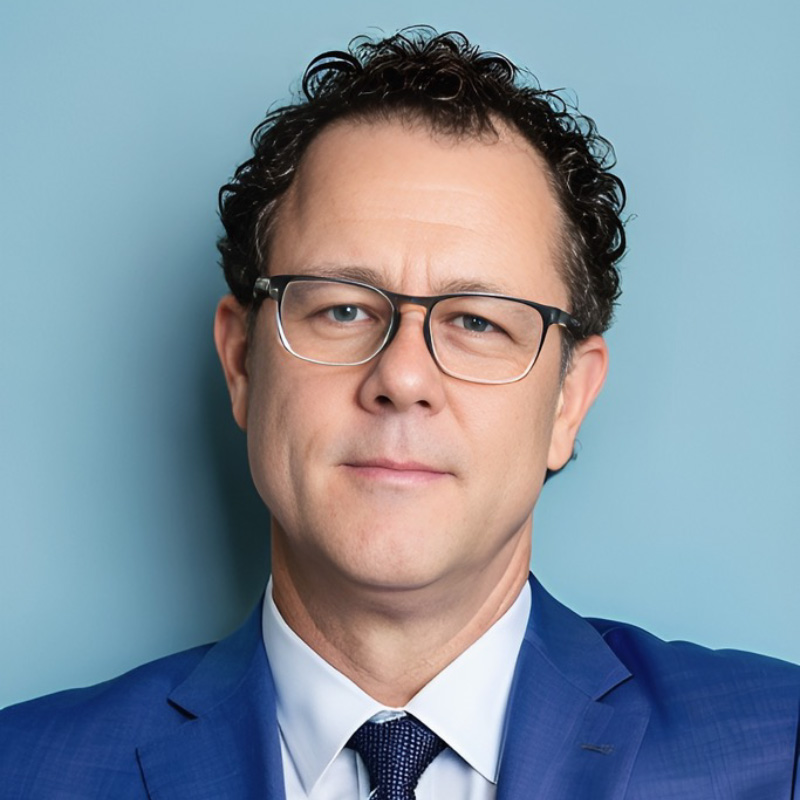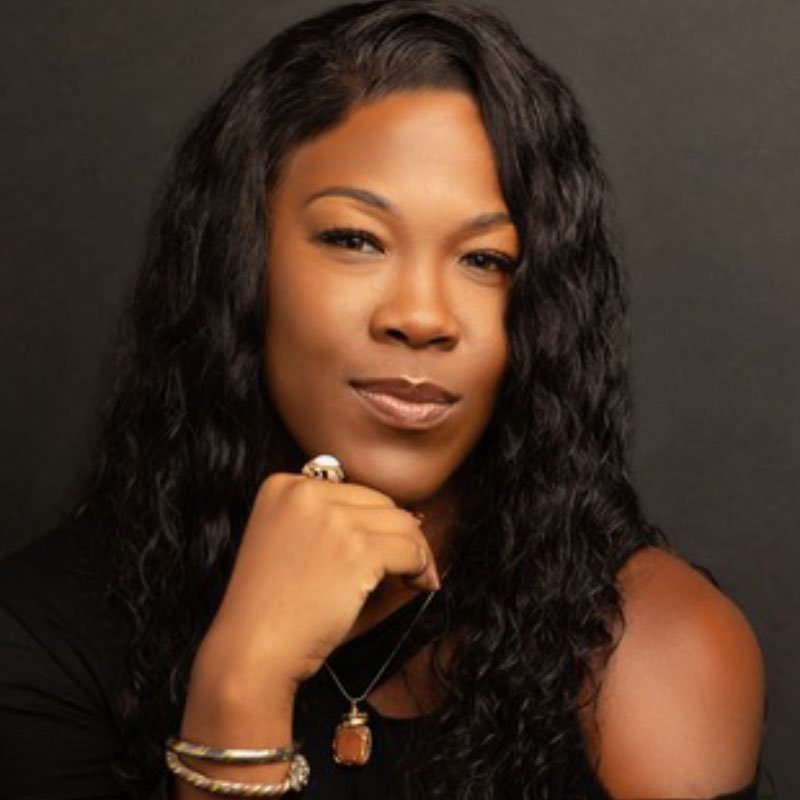#084
Share This:

In this episode of The Matt Feret Show I interview Dr. Jasmonae Joyriel, Psy.D., a licensed psychologist and sex therapist, to discuss the intersection of trauma, intimacy, and relationships. We discuss the nuance of sexual consent, self-awareness surrounding intimacy, and how traumatic experiences influence intimate partnerships. Dr. Joyriel uses her expertise to suggest various activities and exercises to aid the mind-body connection and address self-awareness in trauma and intimacy.
Listen to the episode on Apple Podcasts, Spotify, Deezer, Podcast Addict, Stitcher, Google Podcasts, Amazon Music, Alexa Flash Briefing, iHeart, Acast or on your favorite podcast platform. You can watch the interview on YouTube here.
Brought to you by Prepare for Medicare – The Insider’s Guide book series. Sign up for the Prepare for Medicare Newsletter, an exclusive subscription-only newsletter that delivers the inside scoop to help you stay up-to-date with your Medicare insurance coverage, highlight Medicare news you can use, and reminders for important dates throughout the year. When you sign up, you’ll immediately gain access to seven FREE Medicare checklists.
Quotes:
“Where we've come and where we're really getting to is realizing that sex is an experience and it's expansive and it's ever evolving and changing. And so, as we start to understand more about sex and erotic identity, it can't separate that from understanding that consent is dynamic.”
“That's what I think about when I start thinking about the intersectionality of trauma and intimacy, all those ways that we may become paralyzed, or we may go into fight or flight. Rather than being present and engaged in this moment and in this experience and being able to say the things that I want or don't want, now I'm in this place of sort of fear, trepidation, shame, guilt, all those things that come from really painful experiences in our history.”
“And so much of where we step into the mud or get into these yucky spaces is because something is happening with us that we haven't been aware of that is reminding us of something before. Like I said, there is a function and purpose to every behavior. We breathe oxygen because we need oxygen. When we're yelling and screaming, there's a reason why we think we need to yell and scream.”
#084
Selected Link from the Episode:
Host’s Links:
All Things Medicare: prepareformedicare.com
Decoding Social Security: prepareforsocialsecurity.com
My Written Works on Amazon: www.amazon.com/stores/Matt-Feret/author/B09FM3L4WW
The Matt Feret Show YouTube: www.youtube.com/@themattferetshow
Network with me on LinkedIn: http://www.linkedin.com/in/mattferet
Follow me on X: twitter.com/feret_matt
See behind the scenes on Instagram: www.instagram.com/matt_feret/
Join our community on Facebook: www.facebook.com/themattferetshow/
Guest’s Links:
Instagram: https://www.instagram.com/ignite_anew/
LinkedIn: https://www.linkedin.com/in/dr-jasmonae-joyriel/
Psychology Today: https://www.psychologytoday.com/us/therapists/jasmonae-joyriel-austin-tx/912493
Dr. Joyriel’s practice: https://igniteanew.com/about-jasmonae-joyriel/
Full Show Transcript:
Announcer:
This episode of The Matt Feret Show is brought to you by the Brickhouse Agency. Brickhouse is a boutique independent health insurance agency that focuses on finding the right Medicare coverage for folks across the country. Matt's wife, Niki, is the heart behind Brickhouse. She's great at making confusing things clear and is passionate about helping people find a Medicare insurance policy that suits their individual needs. To schedule a free one-on-one appointment with Niki or a member of her team, head on over to brickhouseagency.com or simply call (844-844-6565), and someone will help you schedule a phone call or a Zoom meeting. The consultation is free because the insurance companies pay Brickhouse, not you. There's never any pressure or obligation to enroll. Your clearer, simpler Medicare journey is just a call or click away. brickhouseagency.com. Not affiliated with or endorsed by the government or federal Medicare program. Contacting Brickhouse Agency LLC will direct you to a licensed insurance agent.
Introduction to Dr. Jasmonae Joyriel with Matt Feret [1:09]
Matt Feret:
Hello everyone. This is Matt Feret, author of Prepare for Medicare and Prepare for Social Security Insider's, guidebooks, and online course training series. Welcome to another episode of The Matt Feret Show, where I interview insiders and experts to help light a path to successful living in midlife retirement and beyond. Dr. Jasmonae, a welcome to the show.
Dr. Jasmonae Joyriel:
Hi. Thanks for having me.
Matt Feret:
I'm really glad you're here. So, I normally start every show off, tell everybody what you do, how long you've been doing it, and how you help people.
Dr. Jasmonae Joyriel:
Yeah, so I am a licensed psychologist and sex therapist. I have a private practice here in Austin, Texas, but I also run immersive healing retreats for women and couples that I just started this year. So I kind of have two different places where I have my hands in the pot. And the way that I got into my work is when I was first going to school, I think I wanted to really understand how people functioned. I think a lot of what I was looking for is to understand my life, my identity, my family, and went through that and took a really big break. I came out of undergrad at 20 and was like, yeah, I should probably not be telling people about what to do with their lives. I have not lived.
Matt Feret:
Wow, that's aggressive. Good for you, 20, my gosh.
Dr. Jasmonae Joyriel:
Yeah, I was a little baby, and so I took a pretty long sabbatical and got a lot of life experience under my belt before I went back to grad school and did everything from really figuring out my career and what careers meant to me. I was a hairstylist for a while, and that taught me a lot about just people and relationships. And so after a while, I went back to grad school, finally ready for my big girl job. And as I was doing that, I was immediately drawn to trauma that I had experienced some trauma throughout my life growing up, but also I was part of a military community and trauma was just, it was rampant. And that's where I think my love started. And what I realized is I had a lot of resilient factors that allowed me to have really thick skin to do that work.
And so as I was doing that, I think gravitated to working with couples. And one of the things I realized is that we did not talk a lot about sex. And to me it's like if you're going to do couples work, sex seems pretty important. And so I started getting more into human sexuality and relationships and intimacy. And then my two worlds kind of came together. And that the way that we saw trauma, and I think the way that we show up in our sex lives, in our erotic lives is very similar. It all impacts the nervous system. And when it's off kilter, it leaves us very imbalanced and it doesn't allow us to make decisions that feel really empowering and aligned to our values. And so for me, it just made sense that these were two worlds where I think there's a lot of fear, there's a lot of shame, there's a lot of trepidation for how to hold it and how to contain it. And yet the cost of not talking about and not confronting these issues is so high. And the impact it has not just on your life, but on your family, on your friends, on how you really thrive in this world is immense. And so that's how I got it.
Dr. Joyriel Explains the Imprint of Traumatic Experiences [05:22]
Matt Feret:
Yeah, thanks. So the intersection of trauma and sex, that's a really unique and interesting topic. How do you want to approach this? Do you want to approach this by talking about trauma and the types of them and then how it works or doesn't or impacts relationships and sex?
Dr. Jasmonae Joyriel:
So I think when I think about trauma is I have expanded my view a little bit over time in the way that most of us have dealt with painful situations that leave an imprint. And so the work that I do at trauma now, I've gotten a lot away from a lot more of the acute trauma of like, oh, you were in this car accident and then this is what happens. But how painful situations in our life, painful dynamics that we encounter, leave an imprint on our nervous system. And so when I think about how I show up in say, a relationship or how I show up in an intimate relationship, well, I need to be present. I need to be sitting in my body. So even right now as we're talking, we've never met before. When I turn on the camera, I'm used to sometimes they have waiting rooms, but we jumped into this room and automatically my heart is beating. And I'm like, oh, okay. And I start to get a little hot and sweaty, oh, hi, how are you?
Matt Feret:
I'm not that intimidating am I?
Dr. Jasmonae Joyriel:
But it's the being in this new space and then having to ground and having to find safety and being like, oh, who's this person? What does he think? And oh, was I ready? And that's just something that's small. That was just in a few moments. And then we started talking. We kind of grounded into the space and we got going. But imagine that in a relationship now, and imagine I don't get the chance to ground, or I don't know how to ground, or I don't know what's dysregulating me. That's what I think about when I start thinking about the intersectionality of trauma and intimacy is all those ways that we may become paralyzed or we may go into fight or flight. And rather than being present and engaged in this moment and in this experience and being able to say the things that I want or don't want, now I'm in this place of sort of fear, trepidation, shame, guilt, all those things that come from really painful experiences in our history. Does that make sense?
Matt Feret:
It does make sense. Can you talk a little bit more about the trauma and define it maybe with examples? Because I think, maybe I'm alone, but when I hear the word trauma, my first reaction is a car accident, or I'm a soldier and I've been to war and I've experienced, I've seen horrible things, or I've been abused verbally or mentally or physically. And then there's an event or either short and impactful or long, and then it stops. And when I hear trauma, I think of something bad. So you said acute, that makes sense. A thing happened and then it stopped. But my sense is that there is a different type of trauma, which is either the aftermath of the acute, but it also sounds like maybe there is just trauma that may not be acute as in episodic, it's ongoing or a part of your life or something from a very long period of time. Do I have that right?
Dr. Jasmonae Joyriel:
Absolutely. So the trauma that I often work with is trauma that is ongoing. And this gets into dynamics. So one may be, and I'm going to separate it from sex real quick and just kind of talk in the trauma space, so one may be: let’s take a little kid. And every time my parents argue, that doesn't seem really big. That doesn't seem significant. But as a kid, I don't have power. I can't tell them to stop. I can't say this doesn't feel good to my nervous system. And so instead, I start looking for ways of how do I deal with this? And I may go to my room, and I put the blanket over my head, and this feels big, bad and scary. It is nothing that’s abusive, I'm not going to be taken out of the house. But what happens is I learned that every time that there's conflict, conflict is big and bad and scary, and nobody ever comes and tells me, “Hey, you're safe. You're okay.” And so that sticks with me and that imprints, and not only that, but because I'm a kid with very few resources, I found the thing that works. And this running away, putting the blanket over my head, hiding has now imprinted on this is how I deal with this. So brilliant as a kid, but as I become an adult and now I need to deal with my boss is upset with me or that I'm having a conflict with my partner or my spouse, now what do I do? Because my nervous system has it locked in that this is big, bad and scary. This is how you deal with this, and I've never confronted that before.
Matt Feret:
And yeah, in your example, there's the pull the covers up and hide, and then there are, I'm sure other examples of finding yourself in a bottle or drugs or argue back, fight back.
Dr. Jasmonae Joyriel:
Absolutely.
Matt Feret:
I mean, there's probably a lot more than fight or flight.
Dr. Jasmonae Joyriel:
And I like to give this example because I think we automatically want to go to the big and loud versus that sort of drip, drip, drip experience that happens to so many of us. And so those experiences, they're not big, they're not loud. We're like, oh yeah, this was fine. This was normal, and it feels very normal until we get into something different or that we start looking for something we want and we can't make that sustainable. So I can't keep this relationship going or I can't get my partner to hear me. I was just working with a couple the other day and around really they're having an argument about flights, but what their argument is really about is feeling abandoned and feeling distrusted. And so even though they're talking about flights, what they're really discussing are these wounds that happened in their childhood that continues to press up against the relationship in such a way that it's creating more and more conflict and more and more distant
Matt Feret:
In these examples it happens in childhood and so it's automatic. You don't even know what you're doing. You don't know that there's any other way or are experiences in young adulthood or adulthood that can either add to or overcome that kind of imprinting that you said.
Dr. Jasmonae Joyriel:
I think imprinting can happen anywhere. So I think we often are more aware. So when it happens in young adulthood, it's like, this happened to me, this changed the course of my life. And that feels a little bit more explicit where I think when we think about things that happened in childhood or early adolescence, they're very normalized. And unless we have parents or caregivers who are shining a light on it, we don't ever think to reflect on it or say, how does this show up in other spaces? And how does this measure up to what other relationships look like or feel like? Those are the ones that often are the ones that are stopping or impeding us from the happiness we're looking for the ones that happen in adulthood, that's a lot easier to be like, this happened and this changed me. And so the question is, is whether I believe that I can find a new normal, but at least I have some idea or some awareness of where that split happened. Where when there are longstanding experiences that I've had, I just think that's the way I am. And especially when we get into personality and it's like, this is just how it is without realizing this is what I learned, this is what happened to me, and this is the impact that it's on me.
Dr. Jasmonae Joyriel on Addressing Traumatic Experiences [14:53]
Matt Feret:
So for those striving for self-awareness, and as you said in young adulthood or adulthood, there can be episodes where life takes a turn, right? A degree or 45. And those are probably, as you said, easier to pinpoint like, oh, that happened, or that occurred, or that change happened in my life. For the folks who are striving to be self-aware in, let's say middle age, older age, to be like, how do I unpack this? A, is it possible to go back to things that were, again, to use the phrase imprinted when I was developing, and B, is there a way to change it?
Dr. Jasmonae Joyriel:
I like to say absolutely, I don't think we need to go all the way back. There's different versions of therapy and psychology that some do a lot of work within childhood. Where I focus on is really in the here and now and this specifically being of what is happening in your nervous system, in your body. So when I think about imprinted not just the way we feel, but how we react. So if we go back to the kid who pulls the blanket over, well, the way that I'm going to react in conflict is going to be consistent that when I get in conflict that I'm going to have this moment of fear, and maybe that part I don't clock, but what I do clock is that every time that my boss starts to give me feedback, I just shut down. I shut down. I don't really engage in the conversation. And so the impact I see is that I'm not getting where I want to go in my career. And the way I would start changing that is first starting to notice the impact that it's having on me. Okay, do I like this? I am not a person who ever tells people what you're doing is right or wrong. The question is: is it effective? And what's the function of it? So if I notice that, okay, my response is not effective, I'm not getting promoted. See Bob over there getting all the accolades, and I keep on feeling like I'm getting looked over is something about this doesn't work for me. So that's the first part. After I do that, then I start thinking about, okay, so what happens in these moments? So when I'm with my boss, what is happening, and I start to realize, okay, I always, there's something where he says a certain word, it's when the pitch of his voice goes up something, and there's this moment where something changes in me that I'm no longer here in this conversation with him, but now my body has taken and it's going into a different direction, shutting down, it's doing right. So that's the next part. And then I go back and I'm like, okay, well what's the purpose of that? And the function or purpose function, the function of that would be is, oh, my body feels, maybe it's in danger that even though that if I'm thinking about it from the rational adult me, I wouldn't go there. But if I start thinking about how is this familiar and what would be the purpose of this? I start getting, oh man, for some reason, my body feels like it needs to protect me. And so I start to recognize that there's this purpose to me shutting down because everything we do, everything we do makes sense in the right context. And once I start understanding the context behind my behavior, then I can start asking myself, is that how I want it to be? Is that right? Is that the best decision, right? Is this actually a dangerous situation? So my boss is giving me feedback. My body for some reason says it's dangerous. Is this actually dangerous? And if so, why? If it's not, what can I do to make myself feel more safe in that space? Maybe I need to take a few breaths. Or maybe it's at the point of just that recognition. Just that awareness allows me to re-engage and say, wait, my boss is actually giving me really great feedback. I clock the danger and I stay present through it and say, okay, I'm not 5, 6, 7 years old anymore. I'm actually this adult and this isn't just an argument that I can't escape. This is feedback that I really want for my job to improve. And so as I start doing that, I really start learning how to take control of my life, of my body, of the moments where my history, my experiences kind of show up and take the wheel.
Matt Feret:
And I'm imagining that takes constant practice and reflection over months and years.
Dr. Jasmonae Joyriel
It's difficult when you first started, but it's a funny thing. I remember when I first learned about the style of therapy that I learned when I was going through grad school, it's functional analytical psychotherapy, which is a third wave of behaviorism. And when I first learned, I remember my supervisor being like, this isn't a technique. This is a way to approach life. And when you start to approach life like this, it will make life so much easier because you stay so aware and attuned with what's going on with you. And so much of where we step into the mud or get into these yucky spaces is because something is happening with us that we haven't been aware of that is reminding us of something before. Like I said, there is a function, there is a purpose to every behavior. We breathe oxygen because we need oxygen. When we're yelling and screaming, there's a reason why we think we need to yell and scream. There was another supervisor who's like, you make the best decision given the current knowledge you have. And so if you start it from that space is like one is to not be your own enemy. And then two is, well, why would this be brilliant? Why would this be the best choice? How did this become the best choice? And is it still the best choice?
Matt Feret:
Yeah, that's the here and now. That's your focus on the here and now. And not necessarily diving back into when I was five, mom and dad argued and I pulled the sheets over my head and hid, and that was my coping. That makes a lot of sense. So there's, there's that work that you can do by yourself in an area where you don't have to let your boss, your supervisor know you're doing it in your scenario. And then there's obviously prep time, and then there's action when you're doing your one-on-one or your review. And then there's reflection. What did I do? Well, what did I not, how did I feel? It's that self-awareness in the here and now I want to pivot to the same topic, but more complex than a supervisor or boss employee relationship or even the other way around. If you've got the employees and you're doing it, I mean, I can tell you from experience that's also can be a nerve-wracking time as well. When you have to give positive feedback's easy, the other person feels good, negative or constructive, if you want to use that word, is difficult not only for the receiver but for the giver. So what are the consequences? You get an average or bad rating or good rating, maybe you get 2% raise, maybe 1%, maybe 3%, but you move on with your day, you move on with your life, not so in relationships, not so in friendships, not so in family relationships, not so in romantic and intimate relationships. And so take us down that path because there are more, I guess if you hate your boss or you don't like what you do, you can always find a new job and move on. That's kind of easier than ending a friendship, creating space with relatives or loved ones or intimate partners, married or unmarried.
Dr. Jasmonae Joyriel:
And so I like to start there because I like people to understand the underpinnings of what this work, because it's the same work. And what I've noticed when we start to get into sex or intimacy or eroticism or relationships, it becomes a much higher risk. It becomes a little bit scarier. So even, and I will check in with you because I love doing this in my work, did you notice a change when we were like, okay, that's boss stuff. And as you started talking about sex, did you notice any change in your body?
Matt Feret:
I noticed the change when you said “I'm going to check in with you.”
Dr. Jasmonae Joyriel:
I am going to put you on the spot.
Matt Feret:
Yeah. Then there was a change for sure.
Introduction to Trauma, Sex, and Relationships with Dr. Joyriel [24:47]
Dr. Jasmonae Joyriel:
Yeah. So oftentimes depending on what topics we're talking about, the fear, the level raises up. And so I think when we have these conversations is one, understanding what does it mean? But as we get into spaces, now, imagine this in the space of intimacy or eroticism and this coming with where there's I think a lot of trauma and a lot of issues around everything from consent to desire to how do we define and communicate what our needs are, that there are so many, and especially when I think about older generations, so I'm still in my late thirties, but older generations of, we didn't talk about sex, you weren't allowed to talk about sex. You were shamed or discouraged. And for most people it might've been like, you don't talk about it, you don't have it, and then you get married and you should be great at it. And so I go from being really afraid to touch this thing to now feeling embarrassed because I can't master this thing. And that is so huge, it throws a monkey wrench into so many relationships and people feel so at fault for a world and a culture that has never set us up to succeed in that space. And it's funny, I just wrote an article talking about the spectrum of consent that most of us think about consent or assault or consent. And the truth is there's this huge gray area that is these experiences, a violation where maybe something wasn't working for me, but I couldn't say that it wasn't working for me or I didn't like this, but I thought I just need to go through with this, or I wanted to ask about this. But when I asked about it, I started feeling a lot of shame and a guilt. And so, I ran away from the conversation, and it leaves us feeling really disempowered, oftentimes disrespected, misunderstood, unseen, and the experiences that we can have in our sex lives plummets. And so, we think about sex is like, oh, well, some of us fall into having amazing sex, or we're blessed with a family who was open. But I think many more are in this space where it's like, well, it was fun in my twenties. And not recognizing that it's not that it was fun, but that at the time there was maybe a lot more hope of like, oh, I'll figure this out. Eventually it will work itself out. But of course it never does because sex is something we have to learn. It is not a trait that we are given.
Matt Feret:
Okay, I want to uncover that. What did you mean by that?
Dr. Jasmonae Joyriel:
Sex is not something you're just good or bad at, right? Sex is something you learn. Just like if I wanted to learn the violin, I'm not going to pick up a violin and just string it out and have a masterpiece on my hands. It's something I have to practice. I have to explore. I have to learn about how do you press this string and what does this string mean? And when do I need to go here? And what are these different words mean? So one of the things I work with couples when they first come in is like, have you two defined fidelity? Have you defined sex? What about desire? And so few couples have actually gone in to truly defining those terms. Where does monogamy end and begin for you that if you're in a monogamous relationship, is part of monogamy, meaning that you're allowed to see other people and think that they're hot and check them out? Or does it mean that you can fantasize about other people? Can you watch porn? Can you masturbate? All of these conversations that when brought up may elicit a lot of fear, a lot of embarrassment, a lot of guilt, a lot of feeling ignorant. I don't know. I don't know the answer to this. And then not only do I have to process that, but now supposed to communicate it to you, my partner.
Matt Feret:
Yeah, that sounds pretty intimidating.
Dr. Jasmonae Joyriel:
Yeah, it is. It really is. And the problem is that it forces us to just go silent, right? And so rather than working through these things when we just stop.
Matt Feret:
Probably stop and assume or stop, and it's like you're blind trying to feel your way through it without really communicating or asking.
Dr. Jasmonae Joyriel:
Yeah, it is one of those spaces where what often comes into my office is this place where we love each other, but does this mean we're just going to be in a sexless marriage? Is this what relationships are all about? And really getting back to this place of like, well, can you even talk about it? What do you know within your own body? There are some couples who have never seen each other naked.
Matt Feret:
Really?
Dr. Jasmonae Joyriel:
They've always had the lights off. I've always kept the lights off because I didn't think that it was okay for my body to be looked at. And so even going through that experience, what is it like for your partner to just look at your body and to indulge in what your body looks like? How does that feel? How does that feel for your partner? How does that feel for you? How do you two create consent?
Dr. Joyriel on the Nuance and Evolution of Consent [31:28]
Matt Feret:
Yeah, I was going to get to that, but let me get to it now. The word consent is, and again, I'm a Gen-Xer, I'm a young Gen-Xer, but still raised by parents from the 1950s and ‘40s and early ‘60s where lots of change was happening and, personal story, I was laughing on the inside and maybe on the outside a little bit too, but we don't talk about it in the way we were raised is all very different. And I can remember the talk I had with my dad and about seventh grade, and I'm sure people listening are watching are going to probably, sex-ed classes in school were just starting. I mean, this was a taboo subject, ‘how dare you all’ sorts of arguments at the PTA and at the school board level. So this was the very first thing, the very first time I remember taking the permission slip home and my dad had picked me up and I was like, “Hey, I think you got to sign this.” And he goes, “You need to know anything about sex?” And that was the first time I'd ever heard him use the word. And probably the only time I ever heard him use the word. And I went, “Nope.” He's like, “Okay.” That was it. So we've evolved to this place now where that was my experience in what? Seventh grade? Sixth grade? Eighth grade, I don't remember, but it was somewhere in middle school, to now on popular TV shows, the word consent is there. And I think there's a little bit, people wrinkle up a nose at the word consent because in one way there's a, hey, we went out on a date. Now do we need to sign a contract before anything happens physically? But that's not it. I mean, that's not all of it. I guess there's a piece of that consent. Yes, no, but then there's a longstanding relationship, even a marriage where the word consent is being used as in, and I'm guessing here, and I want you to tell me, changing what we do, talking about it, thinking things are okay, can you talk about that dynamic and the word consent? Because old school, older school versions of people, older adults, Gen-Xers, whatever you want to call them, Baby Boomers, the word consent goes legal, almost a bit of an eye roll like, oh my God, do I really have to pause mid kiss before I go? And now I'd like to do this. Do you agree? Yes. No, I mean that version is there, but that's not the only version. A, that's not accurate. Or maybe it is. And then there's another version of, look, if I'm with the same partner for 20 years, the word consent can still be used because it still applies in a relationship. Can you talk about those two things and clear it up for me and anybody else that wants to have it cleared up?
Dr. Jasmonae Joyriel:
Yes, absolutely. Oh my gosh, I'm so glad you're asking this. So one, the way that we used to approach consent was very binary, right? Yes or no, and then it's static. That's it once you get it. But the problem with that, it also is indicative of the way that we used to approach sex as a whole. That sex was this really limited rigid box that it was a task we performed, you completed it, you orgasm, done. Hooray, right? Seriously check. There we go. Where we've come and where we're really getting to is realizing that sex is an experience and it's expansive and it's ever evolving and changing. And so as we start to understand more about what is sex? What is your erotic identity? You can't separate that from understanding that consent is dynamic. It is something that changes and has to be created every single time you're with a partner. Because what you do when you're creating consent is you're really building an agreement of how do we have the best possible erotic experience that will leave both of us feeling really good and amazing? If consent is just yes or no, then all of the other conversation that is necessary to create that goes out the door with it. So I think one part is understanding what we mean in creating consent. Creating consent is like, how do I show up for your desires, wants, and needs? What are your boundaries? What are your limits? What is changing in this space? Because what you want today may not be what you want tomorrow. Maybe today you want me to lick your arm and tomorrow you want me, you don't, you want to cuddle. And if consent is just a yes or no, then we don't have that conversation of what are your boundaries for today? And so I think when we first think about consent is really deconstructing it from this idea of this is giving me the entry to the task and rather being like, this is the conversation that starts the exploration for the experience. When I think about what kind of experience I want, I want you to be absolutely ecstatic. I want this to be amazing and fun. And to do that, I need to know what you want.
Matt Feret:
Yeah. What your version of ecstatic and fun is.
Dr. Jasmonae Joyriel:
Absolutely. And that's the other part to it, right? Is that when we start creating consent, I no longer have to be Ms. Cleo, I use this all the time, my session, I'm like, I'm not Ms. Cleo, I can't see you to the future. I can't read your mind. I don't want to be Ms. Cleo. That is a task that is too much for me. What I can do is I can check in and know what I want. I can be willing to communicate that with you. And what I need from you is to know what you want and to communicate that with me. And so I am accountable for my desire and you are accountable for yours, especially when against this place of pleasure. We do this thing all the time where, and some of your listeners may chuckle at this, where you're together and you're in this intimate experience and one partner is doing something and in their head they're like, oh man, they are loving this. And the other partner who's being done too is like, man, they must be really loving this. And it's like, who's loving it? Both of you think the other person really enjoying what's happening. And the truth is, neither one of you are truly enjoying it. So why are you doing it? How would you know if you aren't creating consent with each other? If we aren't separating? What's my pleasure from your pleasure? What's my desire? From your desire? Then how do we know who this is really for? How do we create this amazingly ecstatic experience when neither one of us has communicated with the other of what that looks like and what that means?
Matt Feret:
So that makes a lot of sense, and I'm glad we're talking about it. Take me through a couple that have been together for a long time and things are one side knows what the other likes, the other side knows what the other likes, but there's not much necessarily communication. Or let's just say you've been together for 20, 30, 40 years, and what if things get stale or someone has changes? What's the right way to approach when you've been doing something or not doing something either communicating in a certain way or not communicating in a certain way and you've gotten into a pattern over time that is unfulfilling or you'd like to change it and you're a little worried or scared about your partner rejecting or not being engaged or open. And the fear is, I think you mentioned these words before, fear and shame, And I'm going to use your example. What if I do want my arm licked? And that's just completely out of the norm of what we've been doing for 20, 30 or 40 years, so I'm going to hold that back because I'm going to feel like, well, maybe my partner will judge me. Maybe if I get told no, I'm going to feel shame. Maybe there's a crinkling of the nose and a flattening of the eyes like, wait, what? And then I'm going to immediately go, oh, no, no, no, forget it. It was just a joke. How do I bring that up with my partner? If I've been together with that partner for a very long time, things are kind of normal and now I'm taking it a different direction. How do I open that and how do I protect myself or I guess step out on a ledge and have those conversations?
Dr. Jasmonae Joyriel:
Yeah. So again, recognizing that this is all very scary, right? Because it's vulnerable. We're exposing these new sides to ourselves and saying, Hey, are you going to be okay? Are you going to reject me? And so I think just acknowledging that for what it is, is that there's no getting around that fear. I mean, this extremely vulnerable space for most people. There may be some people who are really free spirits and feel very comfortable with that, but I think for a lot, especially couples, especially monogamous couples, where this is just what I've come to know. And so I think first just really honoring that is the first part. I think the next thing is starting with curiosity is we can hit the gas pedal really hard when it's like, let me tell you about me. And I think a more effective approach is let me learn about you. How do you feel about our sex life or erotic life? How do you enjoy our experiences? Do they feel monotonous to you? Are you still having fun with them? What are the things that have you wanted me to do? Things that you haven't asked? And I think when we start with curiosity, it allows us to connect, and that's part of what sex is. At the core of it, we're connecting with somebody on this primal level, and if we start our conversations around, let me connect with you first before I just throw me out there is let me learn about you. So that's my favorite approach. I know that approach can also be scary.
Matt Feret:
Yeah, so what if you do that and you're like, so tell me about you. And they're like, nope, everything's great, but you've got an alternative motive by asking that question in this scenario, which is I want my, what did you say? My arm licked. I want my arm licked, so I want to ask you about you. And you're like, Nope, everything's great. What we're doing own does. That gives a hesitancy, right?
Dr. Jasmonae Joyriel:
Yeah. I think it gives a hesitancy, but it's not about just simply because I want my arm licked because part of you wanting your arm licked is I want us to have a more fulfilling sex life. I want to have more fun and feel more connected. And so there's a part that I would argue is that, are you feeling completely connected in this? Right? And so if my partner first says, oh, everything's great, then I'd be like, what do you really like about our sex life? What's great about it? And really being ready to listen. If it's still like, no, okay, this is about me getting to my arm, then that's not connection. But if you're like, hey, I really want to know what do you love? Then I start getting my partner to have a dialogue and a conversation with me because the question I'd have is if my partner was unwilling to have that conversation, what does that mean if I'm trying to say, hey, how do you like this? And they're like, fine. What does that mean about the relationship in that area, not as a whole, but in your intimate life? Is that indicative of what sex is like for you two, we don't talk about these things and that's just it. And that may be the injuries. Well, well, I want to know what you really think. I mean, sex can be a lot of different things. Why do you have sex? What do you want out of sex? Have you asked those questions? And really engaging your partner in this place of curiosity of I would like to have more conversations. I would like to really learn about what turns you on. And I really want to share the things that turn me on that we've had a great sex life and I've realized we kind of just go autopilot and I would like there to be more there. I would not like to be autopilot. I would like to be present with you. I don't want to already know what's happening. I really want to create an experience where we're doing what each other wants in this moment. And I don't know that I know that about you, so I can say that if we're not having these conversations, I'm guessing what you want. As much as I'm not telling you what I want, I'm also guessing what you want from me. You must want me to do this, and then you want me to do this, and I can say, I don't want to do that anymore. I want to actually know what you want from me, and I actually want to share with you what I'd like from you. I want to explore this place with you.
Matt Feret:
And that's also, tell me if I'm wrong, that's consent. I mean consent sounds like a legal word to most people, but what you just described is a form of consent. It's a consult of consent to go in different directions and to explore those things with your partner.
Dr. Jasmonae Joyriel:
And I think the thing I take it way out of, and yes, there's a legal space for it, but when we're talking about couples, is this really this place of what you do? When we create consent together, there's a wonderful workshop. There's a book called The Art of Receiving Giving by Betty Martin, and she does this model around consent and really separates it right with touch. And so in the four quadrants that she has, there's one that's like take, allow and serve and accept. And what she does is she breaks down that I could touch you for my pleasure and I could ask you to be touched for my pleasure. And then that reverses. And what that does is if I touch you for my pleasure, the only thing that you are then responsible for is giving me allowance to it, right? To say, okay, yes, that's fine. If there's limitations, this is where I don't want to be touched or this is where I'm okay with being touched, but that's where your responsibility stops. You don't have to pretend to it. You don't have to pretend it's your thing because it's for me. I remember I was out to dinner and sex always ends up coming up, and one of the ladies I was with was like, my husband just honks my boob and I hate it. And she's like, I just don't know what he's doing. And I'm like, well, is it for you or for him? And she's like, what are you talking about? I'm like, well, is it for your pleasure or does he enjoy honking your boob? And she's like, I am assuming he does. And I'm like, well, that might be a question you want to ask him because if he's doing it for you, then tell him to stop. But if he's doing it because he enjoys it, are you okay that he's enjoying your body? And if you're okay that he's enjoying your body, then you can be like, honk away, babe. I don't have to like it.
Matt Feret:
The word honk is probably an indicator of what she feels about it.
Dr. Jasmonae Joyriel:
Yes, it is definitely an indicator of how she feels about it, but that being that beautiful thing where it's like you no longer need to be responsible for pretending to this thing. You just have to decide are you okay with your partner liking this thing? And if we reverse that right, and I'm asking to be touched for my pleasure, you don't have to fear being criticized for being told where to touch me or how to kiss me, or I am expected to share with you how I want to be touched, not honking my boob. Maybe like, hey, I want you to gently caress my boob, or I would rather you kiss it, or I'm not a boob girl and that doesn't do anything for me. But if it's for my pleasure, then the responsibility is on me to guide you on how to do that, right? The only thing you're doing is consenting to serving in that moment that you get to say, I will touch you the way that you want me to touch you. That is what creating consent is about. It is about this space where we get to take full autonomy and ownership of our pleasure with our partner, and rather than feeling guilt and pressure or confusion, we really get to step in the space of what do you want and need from me to make this absolutely amazing for both of us?
The Impact of Trauma on Sex and Relationships with Dr. Joyriel [51:22]
Matt Feret:
Thank you for that. So intimacy and its tie-ins with trauma as we've defined it, right? There's the acute and then there's the ongoing, what's the word? Opposite, acute-
Dr. Jasmonae Joyriel:
Chronic and ongoing.
Matt Feret:
Thank you. So then chronic, when we think about the intersection of the chronic trauma and intimacy, what can I as a listener or a viewer think about my own background in whatever I've got going on in that chronic trauma piece and the way I approach my intimate relationships? What's a connection there? What should I be mindful of or what should I go seek out someone like you for some help?
Dr. Jasmonae Joyriel:
Yeah, so I think this really goes into this place of when I said fight, flight or freeze, that's what really shows up. I think in a lot of intimate relationships where I just become paralyzed or I'm not in the moment, I'm just doing the task because that's what I've been told the task is that when I try to be in the moment, then either I am confronted with feelings of guilt or shame. Maybe it's sin, maybe it's like, I want to ask this thing, but I don't know how to ask this thing. And so paralysis is a big one that I get where it's like, I just don't know what to do. I don't know how to confront it. I don't want to talk about it, so I just stop. Another one that I hear a lot is my partner goes to touch me and I sort of recoil or that I will start an argument because I can't really say that I'm not loving our sex life, and so I get an argument or there are places that I don't want to be touched, but I don’t know how to tell my partner, so then I then take sex completely off the table. I think that shows up so much in relationships where or there's a change. There's something that's changed a lot, especially with I think most real listeners is like if you've gone through menopause that there's changes. If you've had a hysterectomy, if you go through erectile dysfunction where now I don't know how to talk about these things, and so rather than us really learning about all the different ways that we can express our erotic identities, I start to shut down or I start to displace that embarrassment and guilt and shame onto something else that then I'm angry about. Or I think that the way to get out of it if I'm in a monogamous relationship is to go find it in a partner where, oh, well, there's not intimacy here, and so I can give myself permission to do these things when it's casual sex that I can't do because this is what I told was not. It doesn't align with intimate relationships with my partner. My partner is wholesome and good, and so this bad, yucky, naughty thing that I want to do, right? This desire that I have, I need to go find someone that I can go do it with and keep it in a dark little closet. And so we sort of fragment parts of our sexuality, and that's where I really think coming in to see a professional or working with, whether it's a sex therapist, a sex coach, sex consultant, is really, really helpful so that you have an integrated erotic identity that works for your life, that you really are having the most fulfilling sex life or intimate life that you would like to have whatever degree that is. That's what I often see is it really disrupts the nervous system and manifests in all these ways where I step out, I argue, I start to pull away and avoid aspects of the relationship because that is the big scary that we can't talk about. And so much of that is what I came to learn where my parents said No, they said this was disgusting or it wasn't given in school, or that I was only taught abstinence. And so there's so many pieces that need to be deconstructed so that you can really build the erotic life that you want to have.
Addressing Trauma and Intimacy in Older Adulthood with Dr. Joyriel [56:25]
Matt Feret:
I loved our conversation. I could spend hours more talking about that, but before we do that, let me ask, what about trauma and intimacy and sex? Very complex topic, very individualized, I'm sure with grander and broader themes, as you just mentioned, a few of them at the last point that you were talking. What questions or topics around both and the intersection of them did I not ask that I should have?
Dr. Jasmonae Joyriel:
I think what trauma, the big one that I would ask is maybe where to start and where to start, meaning really, and the options that I'm living my life, maybe I can't afford therapy, maybe I can't I, but really finding spaces. So whether you're going, you start meditation practice, whether you just start working out, and I really like approaches where you start connecting with your body because I think anytime we're talking about trauma is what we're looking at as a complete disconnection between your mind and body, and that's what we're seeking to put back together so that you are staying present and engaged and regulated. And so even if you're like, oh, I'm not ready to go look at this because it can be really difficult. I remember I had guys who were seeing me at the VA and it took them three years to come to therapy. That is how scary coming to therapy can be for some people that you get there and your whole entire body's like, I can't do this, and so what can I do? I say start with one small thing, just one, figuring out the lowest hanging fruit to connect with your body. So if that's working out, if that's meditating, if that is journaling, if that is painting, like something that starts to bring you back to you. So that's the one with trauma as far as with sex is what conversations are people having with their partners around. I think this is, and I think maybe this just wasn't the space we went into, but especially as we get into older age, I think there's a lot more around sex and cognitive decline. I think there's a lot around how to have sex in nursing homes that we don't talk about, and I don't know if this necessarily speaks to all the listeners, but as you get into older adulthood, is really learning how to find sex positive or sex affirming or erotic affirming professionals because it's not just, I deal a lot with the shame. I deal a lot with the psychological part of it, but there's some very real physical factors that can interfere. And so really learning how to normalize that and to seek help and guidance around, like I said, things like menopause or erectile dysfunction where maybe these weren't issues before, but they're now a part of my sexual landscape that I need to confront STIs. STIs are on the rise as baby boomers are getting into older age, we're learning a lot more about how to balance sex lives with aging in ways that we haven't before. And if there's shame and guilt, then am I learning to protect myself? Do I know to protect myself? What does it look like when I get an STI? How do I do testing? And so while I get into those a little bit in my work, I think that they're really important areas because there are physical changes that happen with aging that we have to account for that also impact your sex and erotic life.
Matt Feret:
Very good points. And that sounds like a second podcast episode. Are you up for it?
Dr. Jasmonae Joyriel:
I'm always up for it. I love these conversations.
Matt Feret:
Awesome. Dr. Jasmine, Hey, thank you so much for being on.
Dr. Jasmonae Joyriel:
Yeah, thank you for having me. This was a blast.
Matt Feret:
The Matt Feret Show related content, publications, and MF Media LLC is in no way associated, endorsed, or authorized by any governmental agency, including the Social Security Administration, the Department of Health and Human Services, or the Centers for Medicare and Medicaid Services. The Matt Feret Show is in no way associated with authorized, approved, endorsed, nor in any way affiliated with any company, trademark names or other marks mentioned or referenced in or on The Matt Feret Show. Any such mention is for purpose of reference only. Any advice generalized statistics or opinions expressed are strictly those of the host guests of The Matt Feret Show. Although every effort has been made to ensure the contents of The Matt Feret Show and related content are correct and complete flaws and regulations change quickly and often. The ideas and opinions expressed on The Matt Feret Show aren't meant to replace the sage advice of healthcare, insurance, financial planning, accounting, or legal professionals.
You are responsible for your financial decisions. It is your sole responsibility to independently evaluate the accuracy, correctness, or completeness of the content services and products of and associated with The Matt Feret Show, MF Media LLC, and any related content and publications. The thoughts and opinions expressed on The Matt Feret Show are those of the host and The Matt Feret Show guests only and are not the thoughts and opinions of any current or former employer of the host or guests of The Matt Feret Show. Nor is The Matt Feret Show made by on behalf of or endorsed or approved by any current or former employer of the host or guests of The Matt Feret Show.














